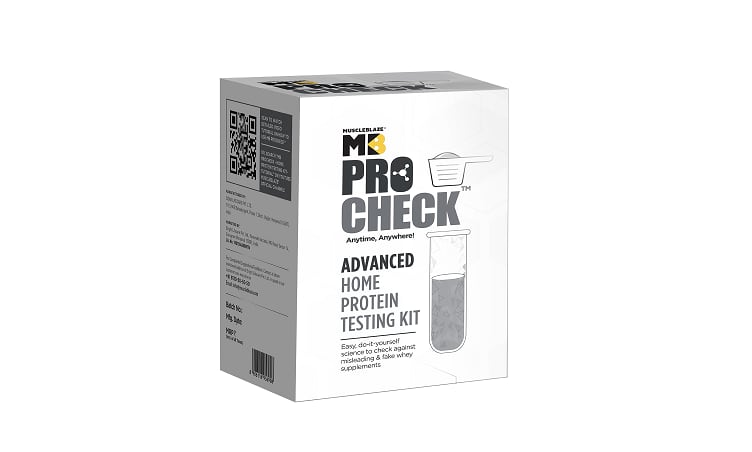The researchers isolated the Lactiplantibacillus plantarum subsp. plantarum from the faecal samples of 2020 Tokyo Olympics women’s weightlifting gold medallist Kuo Hsing-Chun. The species was named L. plantarum Tana after the athlete’s aboriginal name.
After four weeks of administering Tana to mice, the animals showed increased glycogen storage, forelimb grip strength and endurance performance, and decreased fatigue markers like lactate, blood urea nitrogen and ammonia. The benefits were significantly dose-dependent on increasing doses of Tana supplementation, which increased the abundance and ratio of beneficial bacteria in the gut.
The Tana supplementation spanning a month effectively improved the gut microbiota, enhancing exercise performance and antifatigue effects. There was no recorded physiological or histopathological damage.
“There is growing evidence that probiotic supplementation can improve exercise performance and fatigue recovery. However, different strains may have different efficacies.
“Common probiotics were derived primarily from fermented foods, such as yoghurt, cheese, kimchi and miso. However, in recent years, there has been growing interest in the use of human probiotic strains, which are beneficial strains that live in the digestive tract and contain no human by-products or ingredients. Recent research has shown that human-origin probiotics demonstrated superior results and performance in in vitro and animal studies compared to plant- and dairy-derived probiotics.
“Therefore, in this study, we aimed to evaluate the benefits of humanised L. plantarum derived from the gut of Hsing-Chun Kuo (hereinafter called L. plantarum Tana) in improving exercise performance and exhibiting antifatigue effects in mice and to analyse changes in gut microbiota further to explore related mechanisms,” said the team.
A total of 40 male Institute of Cancer Research (ICR) mice were divided into four groups of 10 – the control and three varying doses of Tana into groups named Tana-1X, Tana-2X and Tana-5X. Grip strength, swimming performance and fatigue-associated markers were examined.
The study was documented in a paper titled “Probiotic Lactiplantibacillus plantarum Tana Isolated from an International Weightlifter Enhances Exercise Performance and Promotes Antifatigue Effects in Mice” and published in the journal Nutrients.
Quid pro quo
The extracted L. plantarum Tana from Kuo demonstrated in animal experiments that it could enhance exercise performance, improve body composition, and reduce exercise fatigue. There were also changes recorded to the composition of the gut microbiota.
In the present study, results showing the increased liver and muscle glycogen storage – the main fuel source for long-term moderate-to-high-intensity exercise – corroborated with past research such as B. Shirouchi et al. (2016) and M. Niibo et al. (2019).
When glycogen stores deplete to a particular level with increasing exercise intensity or duration, the exercise capacity of skeletal muscles is impaired, making it difficult to meet the energy demands of training and competition. This resulted in increased fatigue and decreased exercise capacity and endurance performance (Bergström, J., 1967).
Moreover, with better muscle mass comes muscle strength. Tana-5X supplementation alone was found to improve muscle mass in this current study significantly, and four weeks of Tana supplementation without exercise training could also improve grip performance.
Four weeks of Tana supplementation also altered the gut microbiome, increasing the abundance and proportion of Prevotellaceae in the mouse gut, especially in the Tana-5X group.
Prevotella is claimed to promote better glucose tolerance and glycogen storage in mice and might be the main flora in improving glycogen storage and endurance performance in this study. The increased abundance of Prevotella was positively associated with many amino acid and carbohydrate metabolic pathways, including the metabolic branched-chain amino acids (BCAAs).
High levels of BCAAs could reduce exercise-induced central fatigue and muscle fatigue, and promote muscle protein synthesis, thereby reducing muscle damage during prolonged exercise. This could explain the benefit of reduced post-exercise creatine kinase activity in the Tana group following exercise.
“Tana has proven useful as a supplement to improve exercise performance and reduce fatigue. Further research should be conducted to determine the molecular mechanism of Tana involvement in antifatigue and to conduct human clinical trials,” concluded the researchers.
Source: Nutrients
“Probiotic Lactiplantibacillus plantarum Tana Isolated from an International Weightlifter Enhances Exercise Performance and Promotes Antifatigue Effects in Mice”
DOI: 10.3390/nu14163308
Authors: Lee Mon-Chien et al.
Probiotics, healthy ageing and protein are major focus areas of our upcoming Growth Asia Summit in Singapore from 11 to 13 October. Check out big-name brands, international experts and pioneering start-ups slated to present here.




